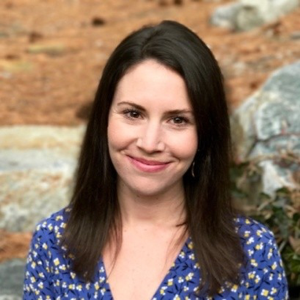Inventor, author, and entrepreneur Arlyne Simon believes creative problem solving should be the foundation of every child’s early education.
The Intel Corporation biomedical engineer says that failure is a part of every invention’s success, and that we need to learn how to fail to succeed.
She is the creator of Abby Invents, a highly regarded series of children’s books about perseverance, the power of learning, and the invention process told from the perspective of a young black girl.
In Episode 7 of Season 2 of his podcast “Understanding IP Matters,” Bruce Berman interviews Simon about the importance of representation, her motivations as an invention educator, and her career as a professional inventor.
Key Responses
How early do we need to start to impart the invention, or creator, story? How early in education?
“As soon as kids can read — even before they can read! I received a really cute video the other day from a little girl who can’t read yet but has memorized the words of the Abby Invents Unbreakable Crayons book. Before she can read, she knows that she can be an inventor…..
I don’t think we need to ask what age we should start talking about inventing to kids. It should be as soon as possible. That way, they grow up knowing that they really can be anything that they want to be — an athlete, a musician, a dancer, and an inventor. You can be both. You don’t have to choose one or the other.
As a kid, I loved making dresses for my dolls. I had a toy sewing machine. Maybe if I had become a seamstress or still dabbled in sewing today, I could have invented something that makes sewing a bit more efficient. I could invent a new way of crocheting.”
Is that one of the motivations behind the Abby Invents series?
“Absolutely. Like I said, it wasn’t until my mid-20s that my advisor told me I could be an inventor. I really don’t think I needed to have waited that long to know that was a possibility….
Abby Invents literally means that there is joy in discovery — because there is joy in discovery! It is absolutely magical. That really was the motivation: To get more kids and more girls and more kids of color to know that inventing is really just problem solving.
Sometimes we use these big words, you know. We say STEM without actually breaking down STEM as science, technology, engineering, and math — and kids don’t know what STEM means. Sometimes, when we talk to kids, we just have to be simple. Inventors are problem solvers, and that is really what Abby does in the series.”
Respect for what goes into an invention and an individual’s creativity, whether it has financial value or not — that’s not something that’s really being taught very much in schools, is it?
“No, I can assure you, all these years when I went to school, that was not taught. That’s a really valid point: We do need to show students the importance of intellectual property. Not just for ownership, but also protecting the uniqueness of your ideas and those of others, and the uniqueness of your thoughts.
That is something that truthfully could be taught really easily in K-12. You mentioned copyrighting — whatever we put out in the world, it’s our copyright. That’s a very simple concept to introduce in English literature classes. I don’t think it needs to be taught specifically in a class that’s called IP education.”
More Highlights
Listen to the entire episode to learn about Simon’s perspective on the value of invention education, how to make intellectual property more relatable, and diversity in engineering, including
- How she draws on her love of literature to help communicate her science ideas effectively.
- What she is working on today as a solutions architect at Intel.
- Her experience as an inventor and a designer in the medical device and computing industries.
- The need to facilitate cooperation among inventors from different disciplines to develop future technologies.

![[IPWatchdog Logo]](https://ipwatchdog.com/wp-content/themes/IPWatchdog%20-%202023/assets/images/temp/logo-small@2x.png)

![[Advertisement]](https://ipwatchdog.com/wp-content/uploads/2024/04/UnitedLex-May-2-2024-sidebar-700x500-1.jpg)
![[Advertisement]](https://ipwatchdog.com/wp-content/uploads/2024/04/Artificial-Intelligence-2024-REPLAY-sidebar-700x500-corrected.jpg)
![[Advertisement]](https://ipwatchdog.com/wp-content/uploads/2024/04/Patent-Litigation-Masters-2024-sidebar-700x500-1.jpg)

![[Advertisement]](https://ipwatchdog.com/wp-content/uploads/2021/12/WEBINAR-336-x-280-px.png)
![[Advertisement]](https://ipwatchdog.com/wp-content/uploads/2021/12/2021-Patent-Practice-on-Demand-recorded-Feb-2021-336-x-280.jpg)
![[Advertisement]](https://ipwatchdog.com/wp-content/uploads/2021/12/Ad-4-The-Invent-Patent-System™.png)






Join the Discussion
One comment so far.
Julie Burke
January 11, 2023 10:31 amThank you, Arlyne! It is truly refreshing to read your phrase “a new way of crocheting” in this IP blog.
Fiber arts and crafts (knitting, crocheting, sewing, quilting, macrame, etc) are accessible, inexpensive, portable, hands-on gateways for young minds to become acquainted with the concepts of models, sequences, 3D structure, complex designs, patterns, codes, geometry, algebra & more.
Plus, fiber arts and crafts are forgiving medium that teaches young minds to fix, not fear, mistakes. Errors in fiber arts can be readily identified and easily fixed. Pieces can be reworked, redesigned and perfected into “useful arts and discoveries.”
By highlighting the value of hands-on educational activities and an early introduction into the concepts of IP rights, Abby Invents is on the right track!